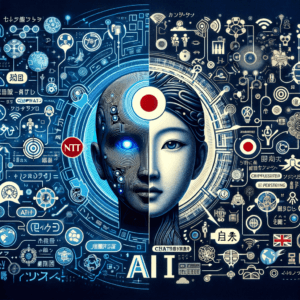NTT Plans
Japan’s major telecommunications company, Nippon Telegraph and Telephone Corp. (NTT), is set to launch a new business-focused artificial intelligence (AI) platform in March. This move is part of NTT’s strategy to compete in the rapidly growing global AI market.

Surpassing ChatGPT’s Capabilities
Enhanced Japanese Language Processing model NTT’s AI platform boasts superior Japanese language processing abilities compared to ChatGPT, an AI chatbot from the American firm OpenAI. This was announced by NTT earlier in the month.
Innovative AI Named After Traditional Instrument
Named after a traditional Japanese hand drum, “tsuzumi,” the AI model is capable of interpreting documents with charts and diagrams, showcasing its advanced features.
NTT Aiming High in AI Market
With a goal of achieving over 100 billion yen (approximately $670 million) in annual sales from this AI platform by 2027, NTT is positioning itself as a significant player in the AI industry.
A Growing Field with Increasing Rivals
According to NTT President Akira Shimada, the AI market is expected to expand substantially due to the competition among various companies.
NEC Corp and Hitachi Ltd in the AI Arena
Japanese technology firms such as NEC Corp and Hitachi Ltd have already introduced generative AI platforms for business customers. NEC launched its platform in July, while Hitachi started a new service in June to assist companies in adopting generative AI.
SoftBank’s Entry into Generative AI
SoftBank Corp established a subsidiary in March dedicated to developing Japanese language generative AI platforms.
NTT’s AI Proves Its Worth
In trial demonstrations, NTT’s AI model has successfully performed tasks like integrating data in electronic health records and summarizing call center conversations, indicating its potential for practical applications.





